Launching New Ventures An Entrepreneurial Approach 6th Edition By Kathleen R. Allen – Test Bank
Chapter 11—Incorporating Ethics and Social Responsibility into the Business
TRUE/FALSE
1. Following the Golden Rule that says “Do unto others as you would have them do unto you,” is a comprehensive answer to ethical dilemmas in the workplace.
ANS: F PTS: 1 REF: p. 247
2. Entrepreneurs should wait until the venture is profitable before making an investment in social responsibility.
ANS: F PTS: 1 REF: p. 258
3. A company’s core values derive from the personal values and beliefs of the founder.
ANS: T PTS: 1 REF: p. 260
4. The mission statement loosely identifies the company’s objectives.
ANS: F PTS: 1 REF: p. 261
5. Strategies are the plans for achieving the goals, and ultimately the mission, of the company.
ANS: T PTS: 1 REF: p. 262
6. An effective ethics program may protect a company from criminal penalties.
ANS: T PTS: 1 REF: p. 248
7. Ethics derives from the cultural, social, political, and ethnic norms with which we were raised as children.
ANS: T PTS: 1 REF: p. 247
8. Ethical issues are the same for managers and leaders regardless of the size of the company.
ANS: F PTS: 1 REF: p. 248
9. E-commerce minimizes conflicts of interests.
ANS: F PTS: 1 REF: p. 250
10. Meeting ethical expectations is part of social responsibility.
ANS: T PTS: 1 REF: p. 257
MULTIPLE CHOICE
1. Recent research has identified four categories of ethical decision making that entrepreneurs face on a daily basis, including individual values, organization values, external accountability, and ____.
a. core values
b. social responsibility
c. corporate vision
d. customer satisfaction
e. None of these choices
ANS: D PTS: 1 REF: p. 248
2. The work of Paul Adler has determined that ____ is/are a critical first step in identifying and assessing an ethical dilemma.
a. accountability
b. awareness
c. legality
d. values
e. None of these choices
ANS: B PTS: 1 REF: p. 248
3. In ethics theory, there are generally three broad categories of perspectives about an ethical dilemma: ____, obligations, and utility.
a. accountability
b. awareness
c. ideals
d. values
e. actions
ANS: C PTS: 1 REF: p. 249
4. In ethics theory, ____ analyzes the costs and benefits of potential alternative consequences of action or inaction.
a. obligation
b. ideal
c. utility
d. value
e. outcome
ANS: C PTS: 1 REF: p. 249
5. ____ in ethical decision making says that “Everyone needs to look out for himself.”
a. Dogmatism
b. Egoism
c. Utility
d. Relativism
e. Subjectivism
ANS: B PTS: 1 REF: p. 249
6. A conflict of interest occurs when a person’s private or personal interests clash with ____.
a. professional obligations
b. professional ethics
c. personal ethics
d. corporate vision
e. social responsibility
ANS: A PTS: 1 REF: p. 250
7. Aristotle, the Greek philosopher, said that ____ is the first of the human virtues because without it, the others are not possible.
a. responsibility
b. vision
c. courage
d. hope
e. None of these choices
ANS: C PTS: 1 REF: p. 253
8. The process of developing a ____ begins with a company’s self examination to identify values held by individuals and alert everyone to inconsistencies in how people deal with particular issues.
a. strategy
b. vision
c. value statement
d. mission statement
e. code of ethics
ANS: E PTS: 1 REF: p. 254
9. The question, “Would I be proud if my actions were announced in my local newspaper?” is part of the ____ approach to ethical decision making.
a. Adler
b. Kantian
c. Greek
d. utilitarian
e. subjective
ANS: B PTS: 1 REF: p. 256
10. ____ means operating a business in a way that exceeds the ethical, legal, commercial, and public expectations that society has of the business.
a. Ethics
b. Social responsibility
c. Vision
d. BHAG
e. Mission
ANS: B PTS: 1 REF: p. 257


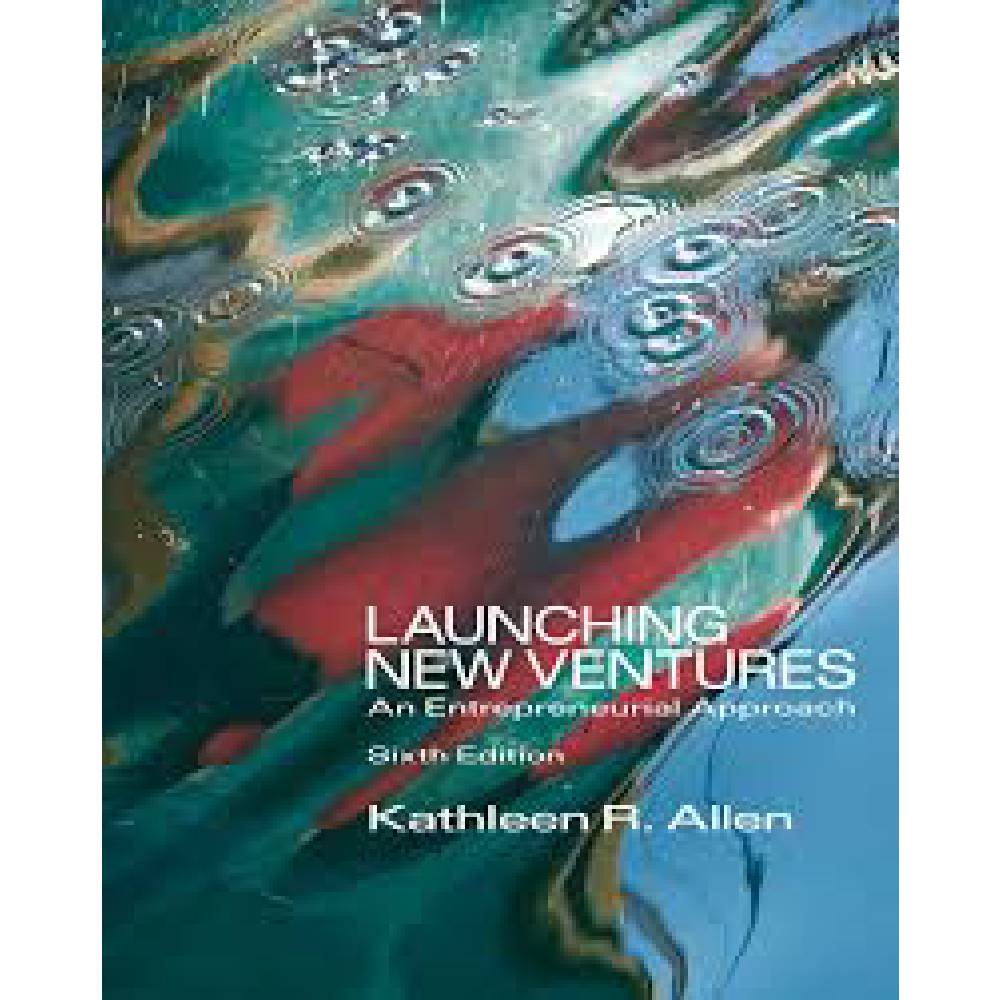



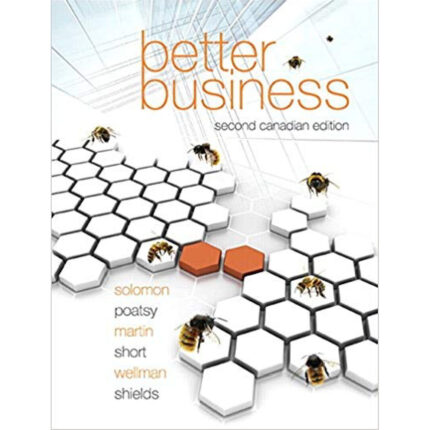
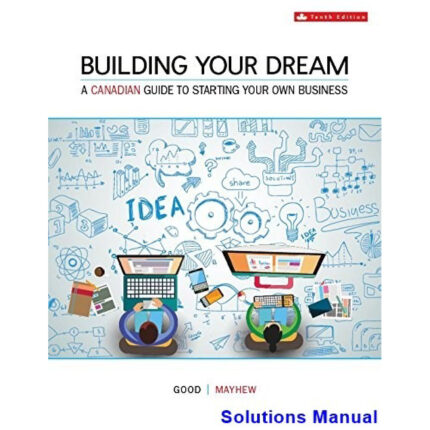

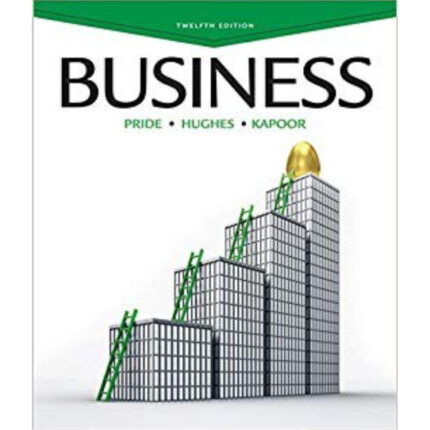
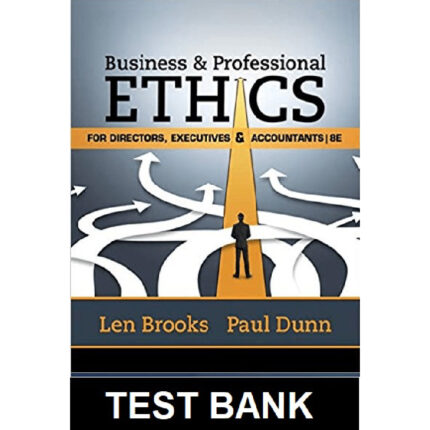
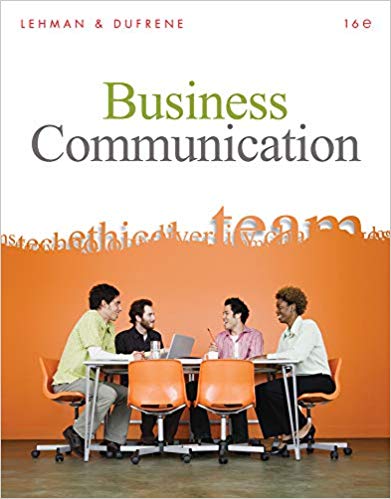
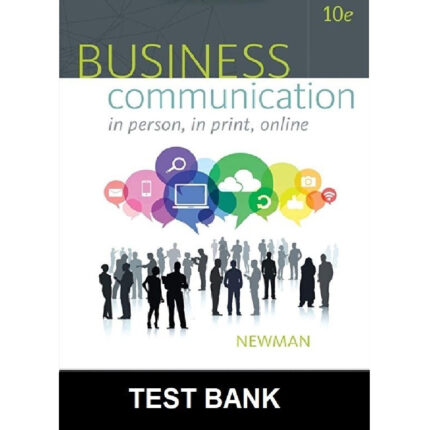
Reviews
There are no reviews yet.